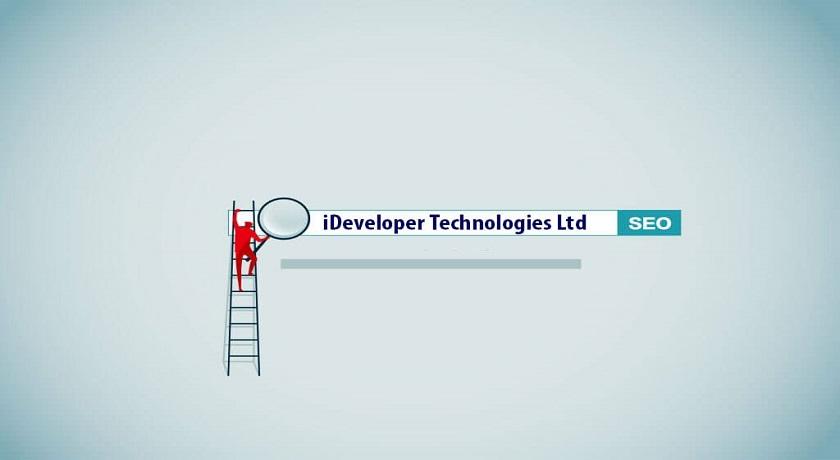You must go through the procedure before you can fully understand SEO's potential. Learn how…

How Long Does SEO Take?
How Long Does SEO Take?
How long SEO will take to provide results depends on three factors. Discover the roles that content, inbound links, and competition play in this.
So “How long does SEO take?” is one of the most often asked inquiries we receive by SEO Prospects.
It’s also one of the most difficult questions to answer since, despite the fact that customers obviously want a clear answer, there is no way to do so given the number of variables at play.
Related: What is Search Engine Optimization and why it’s important!
This is due to the fact that, in addition to all the factors that are taken into account while optimizing your own website, you must also consider the factors used by your competitors.
This can make it exponentially more difficult to respond to a topic that is already complex. We can only offer you a range of six months to a year, which is the most we can do.
The three main factors that affect how long your SEO will take are as follows:
- Competition
- external links
- Content
Unfortunately, there is no right formular to answer this issue. It’s the case of “it’s easier said than done”
But there’s a lot more to answering it than just speculating.
The key to estimating the length of time your SEO will take is to first assess the data underlying these three variables, start working and assess how quickly you start to see results, and then extrapolate that to get a sense of how long it would take to attain a specific place.
Competition influence on how long SEO Take
You probably won’t have any competition if your product is breakfast cereal with salmon flavor.
However, depending on demand, those of us selling goods and services that genuine customers would really purchase will confront varied levels of competition.
A real estate firm servicing a large city would experience less competition than a national mortgage company, while a plumber serving a tiny local market would face less competition than those businesses.
It makes sense that it will take longer to reach the top of the search results the more websites that compete with yours there are. It will generally follow a pattern where it’s quicker and easier to outrank the lower sites, but as you move up the search results, it will often require a lot more time and effort with each step.
This is due to the high level of competition as well as the fact that the top-ranking pages can afford SEO experts.
The relationship between the level of competition within a niche and the skill of the SEO experts behind the highest-ranked websites in that niche is a frequently ignored facet of competition.
Consider it this way:
Companies enter a niche due to demand, which increases competition. Because of the competition, businesses are forced to provide more aggressive pricing, which necessitates a higher market share in order for them to remain profitable.
Big businesses with adequate budgets typically benefit from this climate because they can afford to engage the top SEO experts in the sector. You’re going to have a lengthier and harder battle on your hands if you’re facing this circumstance. Additionally, we need to have a look at their activities during the preceding several months and keep tabs on it moving forward. This is significant because you must work harder than your rivals to surpass them if you want to outrank them.
Inbound Links Impacts on How long SEO will Take
It’s no secret that links continue to be extremely important for SEO, but how long it takes to rank still depends on several fundamental criteria.
The first is how many websites are linking to yours.
In general, having more links will speed up your SEO results, but it’s not just a numbers game.
In general, fewer high-quality links from relevant websites will have a much bigger influence on your rankings than more low-quality connections from unrelated websites.
This is crucial since it will be more challenging for your competitors to reproduce high-quality links as they are typically harder to acquire. In addition, they typically have a longer lifespan than links produced automatically.
However, the rate at which you acquire links and the rate at which you have previously acquired links might also play a role. This is because, generally speaking, an abrupt spike could be a sign of an unnatural attempt to manipulate ranking.
You risk receiving a penalty if you employ techniques that violate Google’s Webmaster Guidelines and experience an unexpected rise in the number of incoming links that prompts a manual review. It ought to appear organic.
Therefore, in general, the more quickly you can acquire relevant, high-quality connections, the quicker you will rank, but there is a catch. Your link velocity, or the rate at which you acquire links, should be growing rather steadily. That ought to occur naturally if your link-building strategies adhere to Google’s recommendations. You often only notice unusual patterns that could impede your success when you employ black hat techniques.
The Impact of Content on SEO Timeframe
How quickly you get results is also influenced by the material you publish on your website, and the first thing you should realize is that quality counts a lot.
Your rating won’t improve if you spend days producing hundreds of the 300-word articles you ordered on Fiverr. Don’t take this to indicate, however, that every piece of material you post must be a 4,000-word monster. In reality, content doesn’t even need to be the perfect length; it only needs to be lengthy enough to address the visitor’s issue.
There is a misconception that suggests you should release new material gradually. This idea is based on the idea that Google can perceive your ranking as suffering if you release a lot of new information quickly. Although it is conceivable that some individuals might hold this myth to be true, Google has formally refuted it. From an SEO standpoint, there is no reason not to publish excellent material right away if it is ready to go. It will improve your ranking more quickly the sooner you get it out there.
Your SEO will only take longer if you wait.
It’s important to note that a website’s age and ranking do have a relationship. In other words, older pages tend to rank higher than newer pages do, but the difference is caused by different reasons than age. On that topic, though, I advise sticking to a regular publication schedule rather than doing so in spurts for the following reasons:
It demonstrates to Google that you regularly upload new content to your website, which usually motivates their spiders to visit it more frequently. This aids in accelerating your SEO efforts.
It motivates visitors to visit your website more regularly, which could assist in influencing Google with favorable user experience signals and, as a result, speed up your SEO efforts.
But it goes beyond just producing material.
The length of time that your SEO takes can also be positively impacted by content deletion.
Making decisions on which content to maintain, improve, and eliminate is crucial.
The secret is to provide unique, practical content that meets the demands of your audience and is constantly improved.
And if you needed another justification, longer, better-quality material typically generates more links than shorter, lower-quality content.
Is everything just a guess?
Similar to meteorologists, we frequently make mistakes despite having extensive training, expertise, and equipment.
Our clients are frequently as disappointed when they don’t see results from their SEO effort as quickly as they would like, much like my neighborhood weatherman, who I want to choke until he turns blue when my plans are derailed by the rain that he assured me wasn’t going to happen.
Managing client expectations is a part of an SEO expert’s job.
Numerous people fall short in this area.
Many clients today have inflated expectations as a result of receiving the information they desired from an excessive number of practitioners. As a result, many people believe that this process only requires a few weeks or months.
For keyword themes with little competition, you might start to notice improvements in organic ranking and a boost in traffic in just a few weeks.
Conversely, very competitive terms could possibly take a year or longer, while moderately competitive themes could take months.
By ranking a website #1 for the keyword “marketing company,” for instance, my team was able to generate a continuous stream of leads over the course of several years.
Nevertheless, it took us nearly a year of regular work to accomplish it despite our abilities, people, and finances.
On the other hand, a certain client who had essentially no online profile contacted us after some unfavorable information about him was published online and utterly misinterpreted.
This had cost him a lot of business because it was the first result in Google for his own name.
Due to the low level of competition for his own name and the low authority of that website, we were able to quickly fill the first few pages of the search results with pages under our control.
In an effort to expedite the procedure, I’ve seen instances when clients and even agencies have employed strategies that are against Google’s Webmaster Guidelines.
Although it might be effective in the short run, you will eventually pay a price and fall further behind than when you started.
Straight from the Source, Google
Even then, you won’t be king of the hill, so be prepared to put in several months to a year before seeing benefits from your SEO efforts.
Here’s what Google said about it.
‘In most cases, SEOs need four months to a year to help your business first implement improvements and see potential benefits
In fact, only 5.7% of all newly published pages will reach Google’s top 10 within a year, according to a thorough statistical analysis by Tim Soulo.
Even when you succeed, you won’t be able to sit back and celebrate because both established companies and up-and-coming ones will be working hard to unseat you. In other words, this is a continuous process that will never be truly finished.



